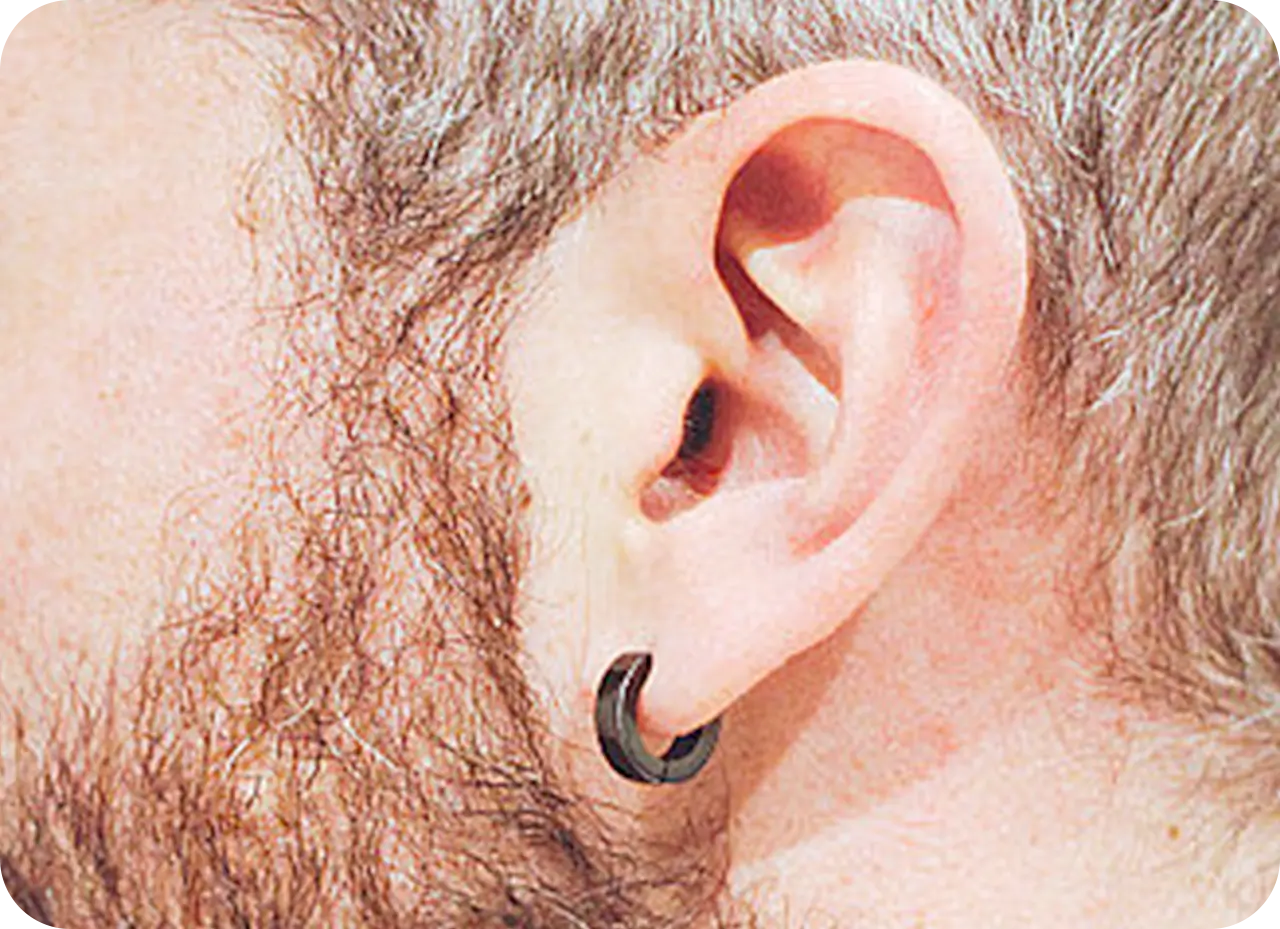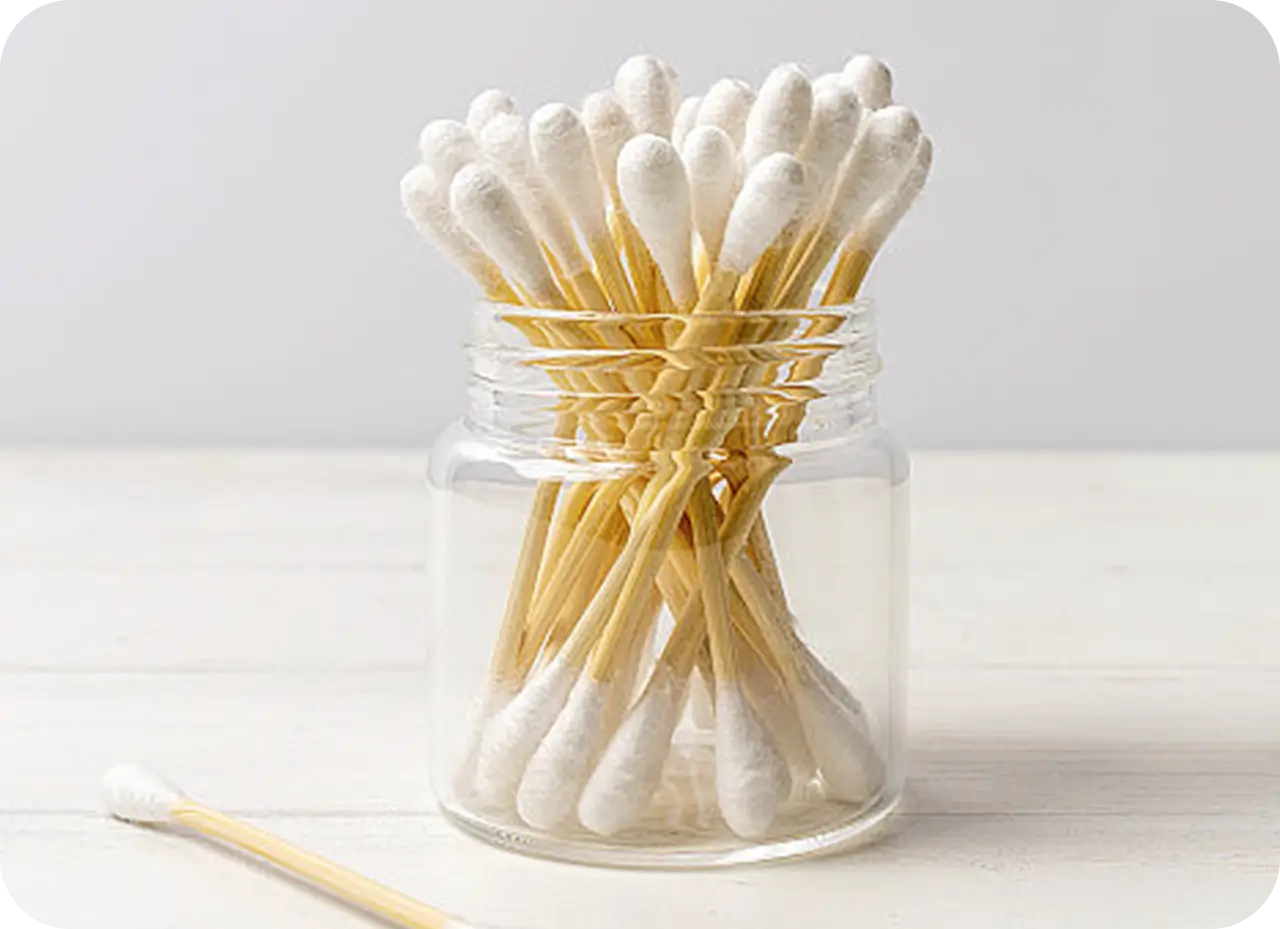Hearing aids can be life-changing for those experiencing hearing loss, but for many, they come with an unexpected and often frustrating side effect—itchy ears. Whether it's a mild irritation or a more persistent itch, dealing with this discomfort can make wearing hearing aids less enjoyable. The truth is, this is a common issue for many hearing aid users, yet it's not something that’s often talked about. In this article, we’ll dive into the reasons why your ears might itch when you wear hearing aids and share some practical tips to help relieve the discomfort, so you can wear your hearing aids with ease and confidence.
Causes of Ear Itching with Hearing Aids
Ear itching while wearing hearing aids is surprisingly common, but understanding the root causes can help manage the issue more effectively. There are several reasons why your ears may itch, ranging from the materials used in the hearing aid to the way your ear canal reacts to wearing the device. Let’s take a closer look at the main causes:
Allergic Reactions to Materials
One of the most common reasons for ear itching is an allergic reaction to the materials used in the hearing aid, such as silicone or acrylic. Many hearing aids have parts that come into direct contact with the skin inside your ear canal, and some individuals may be sensitive or allergic to these materials. If your ears start itching shortly after putting your hearing aids in, this could be a sign that the materials are causing irritation.

Buildup of Earwax
When you wear hearing aids, they can sometimes cause a buildup of earwax. The hearing aid acts as a barrier, preventing the natural movement of wax out of the ear. This can lead to an accumulation of wax, which can cause itching, discomfort, and even affect the sound quality of your hearing aids. It’s important to clean your hearing aids regularly to avoid this buildup.
Moisture and Sweat
Hearing aids, particularly behind-the-ear models, can trap moisture in your ear canal, especially during hot or humid weather. The trapped moisture can irritate the skin inside your ears and cause itching. Sweat buildup can also contribute to this irritation, particularly if you're wearing your hearing aids for extended periods.
Poor Fit or Improper Insertion
If your hearing aid doesn’t fit properly or isn’t inserted correctly, it can rub against the skin of your ear canal, leading to irritation and itching. Over time, even slight pressure or friction from a poor fit can cause discomfort. If you're experiencing consistent itching, it might be worth having your hearing aid adjusted by a professional to ensure it fits comfortably.
Skin Sensitivity
Some people have naturally sensitive skin in their ear canals. This can make them more prone to itching and irritation, especially when the skin comes into contact with hearing aids for long periods. Dry skin, eczema, or other skin conditions can also contribute to this sensitivity.
How to Prevent or Relieve Ear Itching with Hearing Aids
If you’ve experienced ear itching while wearing hearing aids, don’t worry—you’re not alone, and there are steps you can take to relieve the discomfort. Fortunately, most of the causes of ear itching are preventable or manageable with a few simple adjustments and habits. Here’s how you can prevent or relieve the irritation caused by hearing aids:
-
Clean Your Hearing Aids Regularly
One of the most effective ways to prevent ear itching is to keep your hearing aids clean. Over time, wax and moisture can build up on the hearing aids, transferring to your ears and causing irritation. Cleaning your hearing aids daily ensures that dirt and earwax don’t accumulate, reducing the risk of itching. Use a soft cloth or a specially designed cleaning tool to wipe the hearing aid’s surface. If you use ear molds or domes, be sure to clean those regularly as well. -
Keep Your Ears Dry
Moisture in the ear canal is a common culprit behind itching, especially in humid or hot environments. If you sweat or if moisture builds up while wearing your hearing aids, it can cause irritation. To combat this, try using ear-drying solutions or consider using a drying box for your hearing aids at night. You can also carry a small, clean towel to gently dab your ears dry during the day if needed. -
Address Earwax Buildup
If your hearing aid is contributing to earwax buildup, this can lead to discomfort and itching. Regularly removing excess earwax can prevent this. You can use over-the-counter ear drops designed to soften earwax, or better yet, schedule regular ear cleanings with a professional. Don’t use cotton swabs, as they can push the wax further in. A more effective option is to use an ear cleaning kit like the ones available from Bebird, which can gently remove wax without causing injury or irritation. -
Adjust the Fit of Your Hearing Aids
If your hearing aids don’t fit properly, they may rub against the delicate skin of your ear canal, leading to irritation. It’s crucial to have your hearing aids fitted correctly by an audiologist. If they feel too tight or uncomfortable, ask for adjustments. A good fit will reduce friction and pressure, ensuring a comfortable wearing experience. You can also ask for soft ear tips that are gentler on the skin if you’re experiencing ongoing irritation. -
Use Hypoallergenic Materials
If you suspect that allergies to the materials of your hearing aid are causing the itching, consider switching to hypoallergenic options. Many hearing aid manufacturers offer ear molds or domes made from medical-grade silicone or other hypoallergenic materials. This can reduce the likelihood of allergic reactions and minimize irritation. Talk to your audiologist about the best materials for your needs. -
Take Breaks from Wearing Your Hearing Aids
Sometimes, the simplest solution is to give your ears a break. If you’re experiencing persistent itching, it might help to take your hearing aids out for short periods during the day, allowing your ears to breathe and recover. Just be sure to follow your audiologist’s advice on how often you should wear your hearing aids to avoid any negative impact on your hearing.
Conclusion
Ear itching caused by hearing aids is common, but with a few simple steps, you can minimize discomfort. Regular cleaning, managing earwax, and ensuring a proper fit can go a long way.
For a more effective solution, consider using an Ear Cleaning Kit like Bebird's smart ear cleaner. It offers a safe, gentle way to remove earwax and maintain ear health, ensuring your hearing aids work comfortably without irritation.
Taking care of your ears is essential for both comfort and hearing. With the right tools and habits, you can enjoy clear hearing without the itch.
Related: Do Ear Cleaning Kits Work? Everything You Should Know
















Leave a comment
All comments are moderated before being published.
This site is protected by hCaptcha and the hCaptcha Privacy Policy and Terms of Service apply.